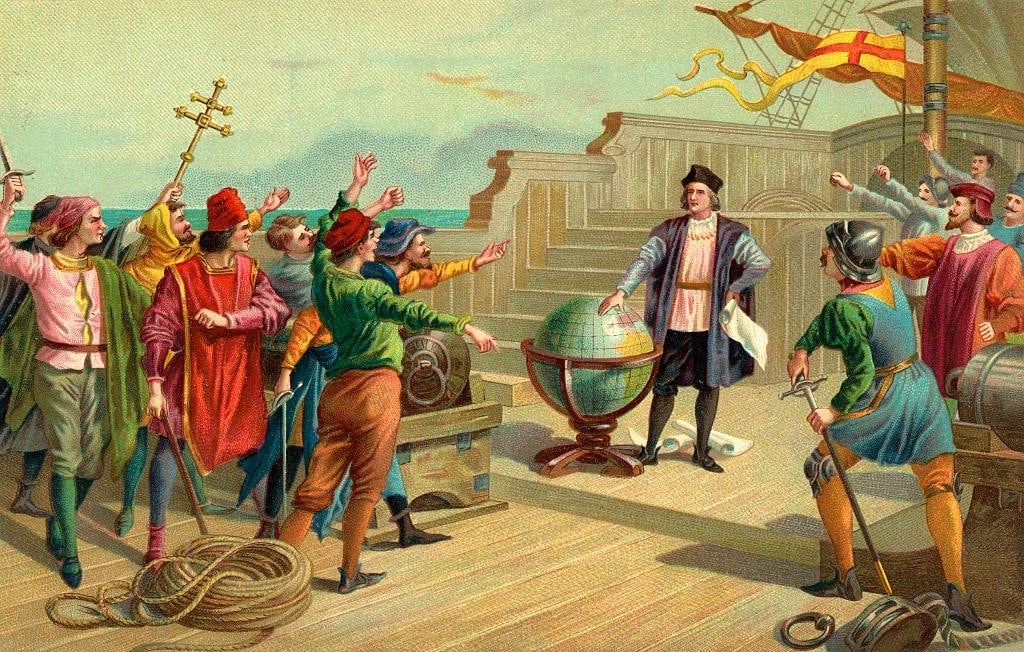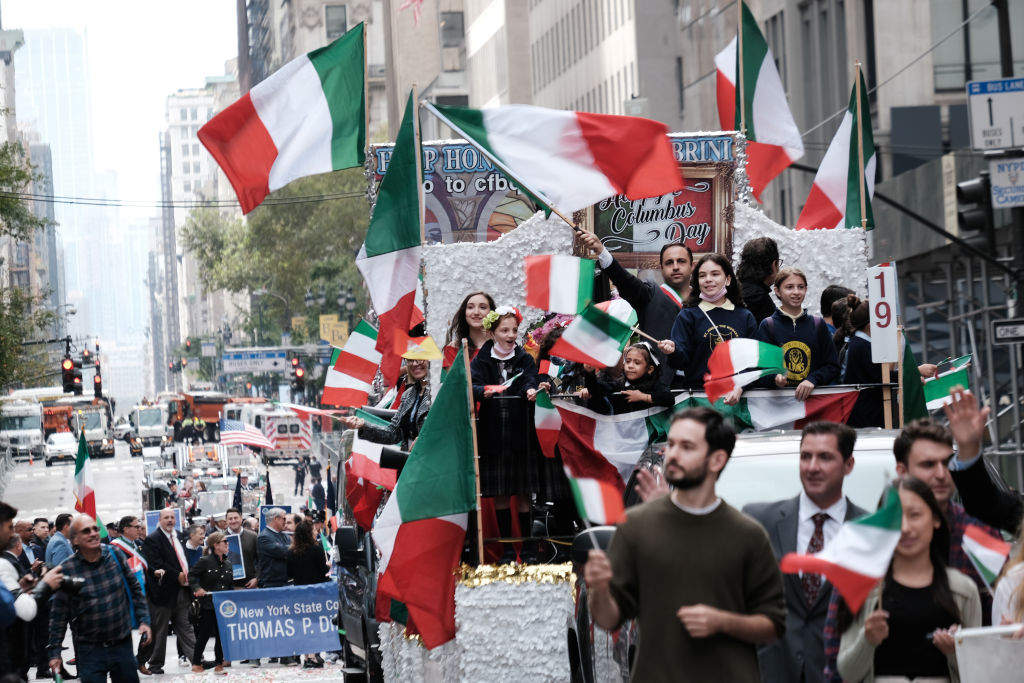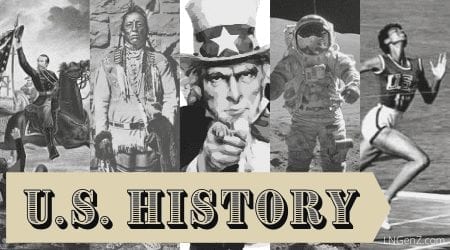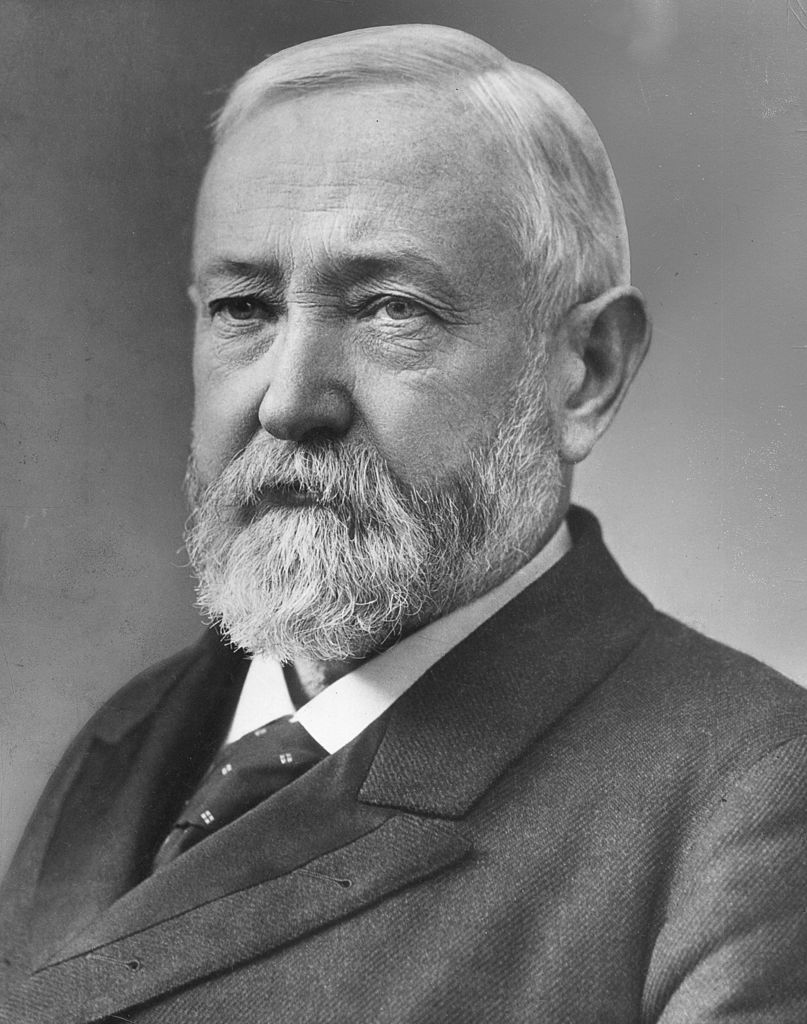-
Halloween
- The Story Behind Halloween – Lesson
- The Story Behind Halloween – Quiz
- Are You Too Old To Go Trick-Or-Treating? – Lesson
- Look out for the Blue Pumpkin – Lesson
- Is the White House Haunted? – Lesson
- Is the White House Haunted? – Quiz
- Mummies Discovered in Egypt – But That’s Nothing to Fear – Lesson
- Salem Witch Trials: When Being Called a Witch Meant Death – Lesson
- Halloween Around the World: It Isn’t Just Costumes and Candy – Lesson
- Halloween Around the World: It Isn’t Just Costumes and Candy – Quiz
-
Thanksgiving
- The Evolution of Thanksgiving – Lesson
- The Evolution of Thanksgiving – Quiz
- The Political Roots of Thanksgiving – Lesson
- The Political Roots of Thanksgiving – Quiz
- Turkey for Thanksgiving – But Why? – Lesson
- Turkey for Thanksgiving – But Why? – Quiz
- This Thanksgiving, Consider Helping the Less Fortunate – Lesson
-
Christmas
-
Easter
- Good Friday: Christ Carried Sin to the Grave – And Left It There – Lesson
- Good Friday: Christ Carried Sin to the Grave – And Left It There – Quiz
- Easter Traditions: From Rabbits to Egg Jarping – Lesson
- Easter Traditions: From Rabbits to Egg Jarping – Quiz
- Easter Monday and Egg Rolling at the White House – Lesson
- Easter Monday and Egg Rolling at the White House – Quiz
-
Federal Holidays and Observances
- New Year’s Day: Just as Political as Anything Else – Lesson
- This Presidents’ Day, Let’s Remember the Weird – Lesson
- Astounding Facts about US Presidents – Lesson
- Astounding Facts about US Presidents – Quiz
- Memorial Day: A Time of Honor and Respect – Lesson
- Memorial Day: A Time of Honor and Respect – Quiz
- From Decoration Day to Memorial Day – Lesson
- From Decoration Day to Memorial Day – Quiz
- Who Was the Poppy Lady, Moina Belle Michael? – Lesson
- Who Was the Poppy Lady, Moina Belle Michael? – Quiz
- The Origins of Flag Day – Lesson
- The Origins of Flag Day – Quiz
- America’s Flag – An Evolved Banner for an Ever-Changing Country – Lesson
- America’s Flag – An Evolved Banner for an Ever-Changing Country – Quiz
- Celebrating the 4th of July – Lesson
- Celebrating the 4th of July – Quiz
- Who Should We Thank for Labor Day? – Lesson
- Who Should We Thank for Labor Day? – Quiz
- Constitution and Citizenship Day – Lesson
- Constitution Day – The First Day of Constitution Week – Lesson
- Constitution Day – The First Day of Constitution Week – Quiz
- The Political Origins of Columbus Day – Lesson
- The Political Origins of Columbus Day – Quiz
- Columbus Day or Indigenous Peoples’ Day? – Lesson
- Columbus Day or Indigenous Peoples’ Day? – Quiz
- Veterans Day: A Day to Honor Those Who Served – Lesson
- Veterans Day: A Day to Honor Those Who Served – Quiz
-
Other Traditions
- Valentine’s Day Love Poems – Lesson
- Love Poems for Valentine’s Day – Lesson
- Who Was St. Valentine? – Lesson
- Who Was St. Valentine? – Quiz
- No Love for Valentine’s Day in the East – Lesson
- No Love for Valentine’s Day in the East – Quiz
- Beware the Ides of March – But Why? – Lesson
- Beware the Ides of March – But Why? – Quiz
- St. Patrick’s Day: A Celebration of the Irish – Lesson
- St. Patrick’s Day: A Celebration of the Irish – Quiz
- May Day: Dancing ‘Round the Maypole – Lesson
- May Day: Dancing ‘Round the Maypole – Quiz
- Cinco de Mayo: Celebrating Mexico’s Victory in Puebla – Lesson
- Cinco de Mayo: Celebrating Mexico’s Victory in Puebla – Quiz
- Mother’s Day: The Anti-War Effort Turned Holiday – Lesson
- Mother’s Day: The Anti-War Effort Turned Holiday – Quiz
- Father’s Day: More Than Just a Day for Ties – Lesson
- Father’s Day: More Than Just a Day for Ties – Quiz
- Presidential Fathers: Responsible for Their Kids and the Country – Lesson
- Presidential Fathers: Responsible for Their Kids and the Country – Quiz
- Proof of the Hanukkah Story Found? – Lesson
- Proof of the Hanukkah Story Found? – Quiz
The Political Origins of Columbus Day – Lesson
Worried about losing an election, President Harrison tried to attract Italian American votes.

Illustration of Christopher Columbus on the deck of the Santa Maria in 1492 (Photo by GraphicaArtis/Getty Images)
Columbus Day celebrates an Italian explorer. Spain sent him to find a better trading route, but he was credited with discovering America by mistake. For centuries, Christopher Columbus and his “discovery” have been celebrated in the United States. But how did this holiday first get started?
The first time a national event celebrated Columbus, it was not designed to honor the man. Instead, it was a political move during a re-election campaign.
The First Columbus Day
The first known Columbus Day festivities were held in 1792 by the New York Columbian Order. The day was celebrated by the Italian and Catholic communities.
It didn’t become an official holiday until 1892, when President Benjamin Harrison made a proclamation to mark the 400th anniversary of Columbus’ voyage. He wrote:
“On that day let the people, so far as possible, cease from toil and devote themselves to such exercises as may best express honor to the discoverer and their appreciation of the great achievements of the four completed centuries of American Life.”

Italian flags fly at a Columbus Day Parade (Photo by Spencer Platt/Getty Images)
However, honoring Columbus was not the true goal. Instead, Harrison was trying to solve a diplomatic crisis with Italy and hoping to gain support from Italian American voters.
A Crisis With Italy
The crisis began when a group of Italian immigrants was killed in New Orleans. In March 1891, six Italians were acquitted of murdering a police chief in the city. It was rumored that the jurors had been bribed by powerful Italian families who were involved in crime. The next morning, thousands of people arrived at the Orleans Parish Prison, where six of the defendants and 13 other Italian suspects were captive. A group of armed men broke into the jail and killed nine of the prisoners.
Italian immigrants at the time were highly discriminated against, and newspapers painted the prisoners’ murders in a good light. Even Theodore Roosevelt, a U.S. Civil Service commissioner at the time, didn’t condemn the event. He wrote to his sister that, “Personally, I think it a rather good thing.”
 This reaction angered Italians, both in America and their homeland. Italy ended diplomatic relations and called its ambassador away from the U.S. There was even talk of war brewing. It wasn’t until months later that President Harrison finally spoke against the murders, describing them as “a most deplorable and discreditable incident” and an “offense against law and humanity.”
This reaction angered Italians, both in America and their homeland. Italy ended diplomatic relations and called its ambassador away from the U.S. There was even talk of war brewing. It wasn’t until months later that President Harrison finally spoke against the murders, describing them as “a most deplorable and discreditable incident” and an “offense against law and humanity.”
Winning Back Italians
Italy demanded that America pay money to the relatives of three victims, who were Italian citizens. Harrison agreed. But it was an election year.

Benjamin Harrison (Photo by PhotoQuest/Getty Images)
Somehow, Harrison had to gain the support of Italian voters in America. The Brooklyn Citizen wrote:
“… the approaching Presidential election and the necessity the President feels under of repairing his political fences in every direction … He does not want to have the Italian vote massed against him.”
Harrison met with Francis Bellamy, who encouraged a national holiday to promote patriotism among schoolchildren. Bellamy had written “The Pledge of Allegiance” for that meeting. Liking the idea, Harrison took it to Congress. A one-time holiday was held to celebrate Columbus to “impress upon our youth the patriotic duties of American citizenship.”
Even so, Columbus Day did not become a yearly national holiday until 1934, after the Knights of Columbus lobbied Congress. President Franklin D. Roosevelt approved the holiday. The second Monday in October was declared the specific holiday in 1971.